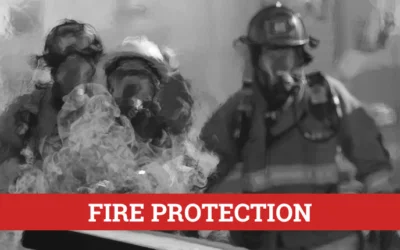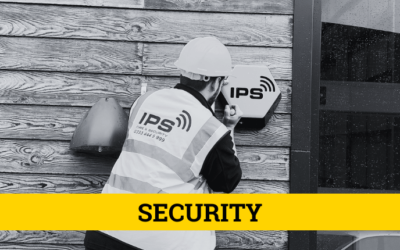Understanding UK Fire Safety Law
The Regulatory Reform (Fire Safety) Order 2005 applies to all non-domestic properties in England and Wales, including Airbnb accommodations. As a property owner, you’re deemed the ‘responsible person’ for fire safety. Your primary duty is to conduct a thorough fire risk assessment and implement necessary fire safety measures to keep guests safe.

Fire statistics that Airbnb and holiday rental owners should know
- £657,074 – Average financial loss per fire incident in the UK
- Direct marginal costs by fire type:
- £1,779 million – Other buildings
- £922 million – Dwellings
- £90 million – Other outdoors
- £364 million – Road vehicles
- Unit costs per fire type:
- £45,900 – Primary fires
- £48,400 – Deliberate fires
- £44,900 – Accidental fires
Sources: Gov UK, BDC Magazine, FIA, Fire Protection Association
Book a fire risk assessment with us
UK Law Changes Airbnb Owners Need to be Aware of
- Duty Holder Responsibilities: As a result of new fire safety regulations, Airbnb and holiday rental owners are now designated as “duty holders.” This role requires them to take a more active role in ensuring fire safety, primarily through regular fire risk assessments. These assessments are crucial for identifying potential fire hazards in the property and implementing necessary safety measures, thereby ensuring the safety of guests and compliance with legal standards.
- External Wall Systems: For Airbnb owners, if your property has external cladding, it’s crucial to conduct a fire safety assessment. This step is essential, especially considering historical incidents involving cladding materials. Ensuring your property’s cladding complies with fire safety standards is pivotal to guest safety and regulatory adherence.
- Fire Risk Assessments: Airbnb property owners must now perform comprehensive fire risk assessments. This crucial change involves evaluating potential fire hazards within the property, including common areas and escape routes, and ensuring effective fire safety measures are in place for guest protection.
- Fire Safety Information: Airbnb hosts are now required to provide guests with clear, current fire safety information. This includes guidance on emergency procedures and the locations of safety equipment, helping to ensure guest awareness and safety.

“Whether it’s taking a minute to test your smoke alarms regularly, or having an escape plan for guests handy, we’re encouraging all of our hosts to follow a few simple steps to make their home even safer.”
Natasha Mytton Mills, Public Policy Manager at Airbnb UK
Conducting a Fire Risk Assessment: Step-by-Step
Consider the following elements for your Airbnb when assessing fire risks.
- Identify Fire Hazards
- Sources of ignition (e.g., electrical equipment, cooking appliances)
- Sources of fuel (e.g., furniture, laundry)
- Determine Who is at Risk
- Guests, especially children, the elderly, or those with disabilities
- Evaluate and Act
- Remove or reduce fire hazards
- Implement fire detection and warning systems
- Record, Plan, and Train
- Keep a written record of your fire risk assessment
- Develop a clear fire safety plan for guests
- Ensure familiarity with evacuation procedures
- Review Regularly
- Update the assessment regularly, especially after changes in the property layout or usage
Essential Fire Safety Measures
The following should all be in place with your Airbnb or holiday rental property
- Smoke Alarms: Install in every sleeping area and test regularly.
- Fire Extinguishers: Place in key areas, particularly the kitchen.
- Fire Blankets: Keep in the kitchen to tackle small fires.
- Clear Escape Routes: Ensure exits are well-marked and unobstructed.
- Emergency Information: Provide guests with clear instructions on what to do in case of a fire.
Additional Fire Safety Tips
- Check Appliances Regularly: Ensure electrical appliances are PAT tested.
- Safe Heating Practices: Provide instructions for safely using heaters.
- No Smoking Policy: Implement and clearly mark if your property is non-smoking.
What You Should Do
Adhering to the fire safety regulations for Airbnb properties, effective from October 1, 2023, is essential for both legal compliance and the ethical duty to protect all who stay at your property. We offer expert fire safety solutions customised to meet the specific requirements of your Airbnb. Our experienced assessors are ready to guide you through these new regulations.
Contact us for a detailed fire risk assessment to ensure your Airbnb property portfolio is a safe space for guests and employees. Embracing these safety measures is crucial in averting potential hazards and preserving lives.
Book a fire risk assessment with us
We Cover the Following Areas
We provide rapid turnaround of fire risk assessments for businesses in towns and cities throughout Hampshire, Kent, Surrey, and Sussex, including:
Andover, Basingstoke, Brighton, Bournemouth, Chichester, Crawley, Eastbourne, Farnham, Gravesend, Guildford, Hastings, Horsham, Lancing, Littlehampton, Central, inner and outer London, Maidstone, Midhurst, Portsmouth, Southampton, Salisbury, Tunbridge Wells, Winchester, and Worthing.




